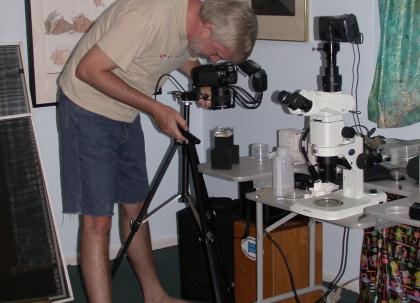1: Preparations
Swimsuit, hat, shorts, T-shirts, field shoes, snorkel gear, dissecting tools, calipers, laptop, tripod, and video camera—my lists are long and detailed. In many ways, this expedition will be logistically easier than some of my earlier ones to less developed parts of the world. No need to pack water filters, food, or scuba tanks this time! But suitcases and duffel bags are filling up with essential research gear, nevertheless. Over the past months, each of the participants in the Moreton Bay Expedition has been assembling a similar list or making a pile in a corner of "Things to Bring to Moreton Bay."
Our local participant, John Healy, has been working with staff at the Moreton Bay Research Center to make sure that we'll have everything that we need, including the chemicals that we'll use to preserve our clams. John Taylor and Emily Glover in London have compiled their notes of where they've found what during their previous visits. Gonzalo Giribet and his assistants in Massachusetts are preparing the molecular kits that they will bring. Paula Mikkelsen in Ithaca, New York, has been worrying about cameras and GPS units that we'll need to document the trip and record our data accurately. And I’ve been coordinating all of this, reminding each of us about things we may have forgotten.
Most of us have a 30+ hour trip ahead of us. For me, there are three airplane "legs"—Chicago (departing 2:20 pm October 9) to San Francisco; SF to Sydney (that one is 16 hours alone—and I lose one whole day crossing the International Date Line!); and Sydney to Brisbane, arriving at 10:30 am on October 11. After what will be a welcome night's sleep in a Brisbane hotel, we'll all gather on October 12 for a train ride and then a boat to Moreton Bay Research Station. Once we’ve arrived, there will be lots of unpacking and planning before we actually start work. We have four days of shallow-water collecting planned (including shoveling and sieving, yabbie pumping, and snorkeling), followed by four days at sea on a chartered research vessel to dredge for our bivalves in deep water. Exciting days ahead!



